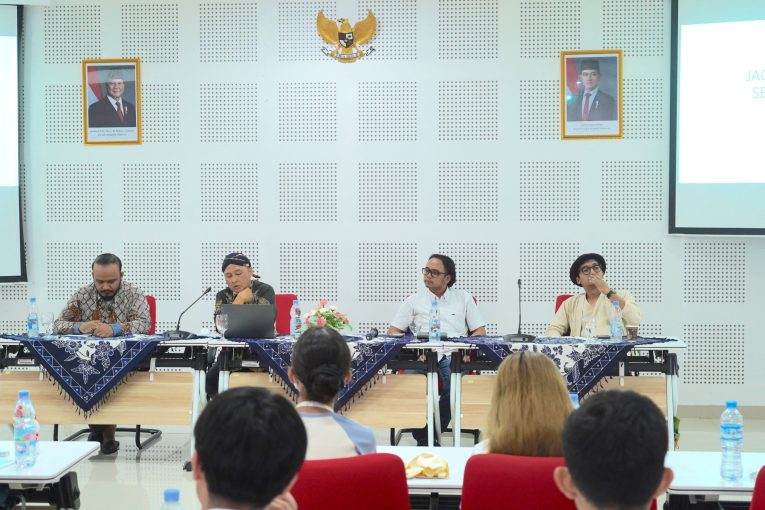
Yogyakarta, 15/9/2025 – The Department of Language and Literature, Faculty of Cultural Sciences (FIB) UGM, held an event titled “Expert Lecture on Philology: Transforming Ancient Manuscripts into Performing Arts.” The program took place at Room 709, R. Soegondo Building, FIB UGM from 09.00 to 12.00 GMT+7, and was also streamed live through the official YouTube channel Kanal Pengetahuan FIB UGM.
The lecture attracted not only students from FIB UGM but also international participants, including students from Osaka University, Japan. Some participants joined via Zoom, creating a vibrant and cross-cultural discussion. The presence of international students highlighted the global relevance of this topic and opened opportunities to promote Indonesia’s cultural heritage on an international stage.
The first speaker, Dr. R. Bima Slamet Raharja, M.A., a lecturer in Javanese Language, Literature, and Culture, delivered a theoretical framework of alih wahana (media transfer), moderated by Dr. Rudy Wiratama, M.A. Dr. Bima explained that alih wahana encompasses translation, adaptation, and the transfer of one art form into another. “A medium is like a vehicle—it carries ideas, feelings, and expressions,” he emphasized.
He further explained that alih wahana is inseparable from intermedia relations. Understanding the medium used to express ideas has significant implications for the study of art and media, ranging from expression, cinema, illustration, and visual poetry to remediation, adaptation, and multimedia practices.
Following this session, presentations by Anon Suneko, S.Sn., M.Sn., and Paksi Raras Alit, S.S., M.A., complemented the discussion by exploring the practical aspects of transforming ancient manuscripts into performing arts. Their insights bridged theoretical perspectives with contemporary artistic practices, providing students with new ways to connect classical texts to modern forms of cultural expression.
Beyond academic enrichment, the event strongly supports the Sustainable Development Goals (SDGs), particularly in cultural preservation, quality education, and international cooperation. The involvement of international participants underscored the potential of transforming ancient manuscripts into performing arts not only as a form of heritage conservation but also as cultural diplomacy—strengthening Indonesia’s role in promoting its cultural legacy to the world.
Author: Candra Solihin


